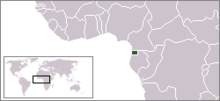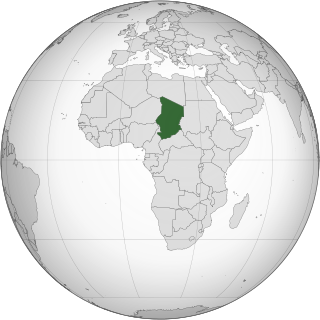
Lesbian, gay, bisexual, and transgender (LGBT) people in Chad face legal challenges not experienced by non-LGBT residents. Both male and female forms of same-sex sexual activity are illegal in the country. Before the new penal code took effect in August 2017, homosexual activity between adults had never been criminalised. There is no legal protection against discrimination based on sexual orientation and gender identity.

Lesbian, gay, bisexual, and transgender (LGBT) persons in Bosnia and Herzegovina may face legal challenges not experienced by non-LGBT residents. Both male and female same-sex sexual activity are legal in Bosnia and Herzegovina. However, households headed by same-sex couples are not eligible for the same legal protections available to opposite-sex couples.
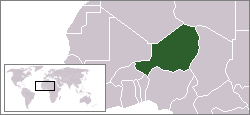
Lesbian, gay, bisexual, and transgender (LGBT) people in Niger face legal challenges not experienced by non-LGBT residents. Although same-sex sexual activity is legal, the Nigerien LGBT community faces stigmatization among the broader population.

Lesbian, gay, bisexual, and transgender (LGBT) people in the Democratic Republic of the Congo (DRC) face discrimination and legal challenges not experienced by non-LGBT residents. Same-sex sexual activity is legal for both males and females in the Democratic Republic of the Congo, although LGBT individuals may still be targeted for prosecution under public indecency provisions on occasion.
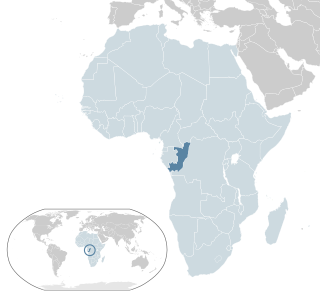
Lesbian, gay, bisexual, and transgender (LGBT) people in the Republic of the Congo face legal challenges not experienced by non-LGBT residents. Both male and female expressions of homosexuality are legal in the Republic of the Congo, but same-sex couples and households headed by same-sex couples are not eligible for the same legal protections available to opposite-sex couples, with reports of discrimination and abuses towards LGBT people.

Lesbian, gay, bisexual, and transgender (LGBT) people in Gabon face legal challenges not experienced by non-LGBT residents. Except for a period between July 2019 and June 2020, same-sex sexual activity has generally been legal in Gabon.
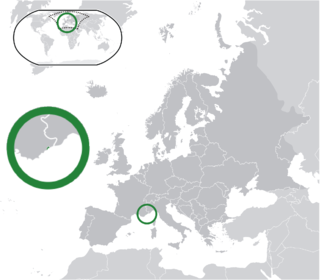
Lesbian, gay, bisexual, and transgender (LGBT) people in Monaco may face legal challenges not experienced by non-LGBT residents. Both male and female same-sex sexual activity are legal in Monaco. However, same-sex couples and households headed by same-sex couples are not eligible for the same legal protections available to opposite-sex married couples.
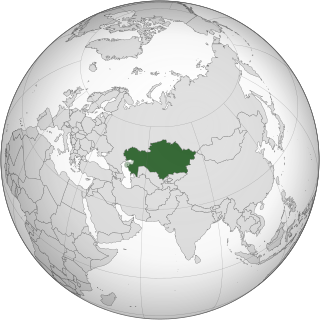
Lesbian, gay, bisexual, and transgender (LGBT) people in Kazakhstan face legal challenges not experienced by non-LGBT citizens. Both male and female same-sex sexual activity are legal in Kazakhstan, but same-sex couples and households headed by same-sex couples are not eligible for the same legal protections available to opposite-sex married couples.

Lesbian, gay, bisexual, and transgender (LGBT) people in Cape Verde are afforded greater protections than those in many other African countries. Homosexual activity has been legal in Cape Verde since 2004. Additionally, since 2008, employment discrimination on the basis of sexual orientation has been banned, making Cape Verde one of the few African countries to have such protections for LGBT people. Nevertheless, Cape Verde does not recognize same-sex unions or marriages, meaning that same-sex couples may still face legal challenges not experienced by non-LGBT residents. Households headed by same-sex couples are also not eligible for the same legal protections available to opposite-sex couples.
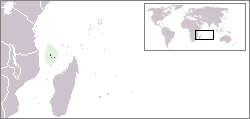
Lesbian, gay, bisexual, and transgender (LGBT) people in Comoros face legal challenges not experienced by non-LGBT residents. LGBT persons are regularly prosecuted by the government and additionally face stigmatization among the broader population.

Lesbian, gay, bisexual, and transgender (LGBT) people in Nicaragua face legal challenges not experienced by non-LGBT residents. Both male and female types of same-sex sexual activity are legal in Nicaragua. Discrimination based on sexual orientation is banned in certain areas, including in employment and access to health services.

Lesbian, gay, bisexual, and transgender (LGBT) people in the Ivory Coast face legal challenges not experienced by non-LGBT residents. Both male and female types of same-sex sexual activity are legal in Ivory Coast, but same-sex couples and households headed by same-sex couples are not eligible for the same legal protections available to opposite-sex couples.
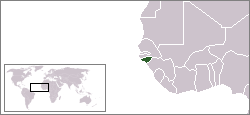
Lesbian, gay, bisexual, and transgender (LGBT) people in Guinea-Bissau face legal challenges not experienced by non-LGBT residents. Same-sex sexual activity is legal in Guinea-Bissau, but same-sex couples and households headed by same-sex couples are not eligible for the same legal protections available to opposite-sex couples.

Lesbian, gay, bisexual, and transgender (LGBT) people in São Tomé and Príncipe face legal challenges not experienced by non-LGBT residents. Both male and female forms of same-sex sexual activity are legal in São Tomé and Príncipe, however LGBT persons face stigmatization among the broader population.

Lesbian, gay, bisexual and transgender (LGBT) people in Mongolia face legal and social challenges not experienced by non-LGBT people, though there have been substantial improvements since the 1990s. Homosexuality was criminalised in Mongolia in 1961 through its Criminal Code. Following the Mongolian Revolution of 1990 and the peaceful transition to a democracy, homosexuality was legalised and awareness about LGBT people has become more prevalent. Hate crimes on the basis of sexual orientation and gender identity result in additional legal penalties. Hate speech based on these two categories has been outlawed in the country since 1 July 2017. Households headed by same-sex couples are, however, not eligible for the same legal protections available to opposite-sex couples.

Lesbian, gay, bisexual, and transgender (LGBT) people in Seychelles face legal challenges not experienced by non-LGBT residents. Same-sex sexual activity has been legal since 2016, and employment discrimination on the basis of sexual orientation is banned in Seychelles, making it one of the few African countries to have such protections for LGBT people. However, LGBT people may nonetheless face stigmatization among the broader population.

Lesbian, gay, bisexual and transgender (LGBT) people in Mozambique face legal challenges not faced by non-LGBT people. Same-sex sexual activity became legal in Mozambique under the new Criminal Code that took effect in June 2015. Discrimination based on sexual orientation in employment has been illegal since 2007.

Lesbian, gay, bisexual, and transgender (LGBT) persons in Niue face legal challenges not experienced by non-LGBT residents. Male same-sex sexual activity is illegal in Niue, although there is no recent instance of it being actively prosecuted. Same-sex couples and households headed by same-sex couples are not eligible for the same legal protections available to opposite-sex married couples.
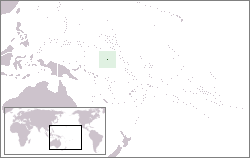
Lesbian, gay, bisexual, and transgender (LGBT) people living in Nauru may face legal and social challenges not experienced by non-LGBT persons. Same-sex sexual activity has been legal since May 2016, but there are no legal recognition of same-sex unions, or protections against discrimination in the workplace or the provision of goods and services.

Lesbian, gay, bisexual, and transgender (LGBT) persons in Anguilla face legal challenges not experienced by non-LGBT residents. Same-sex sexual activity is legal in Anguilla, but same-sex couples cannot marry or obtain civil partnerships. Anguillian law does not forbid discrimination based on sexual orientation or gender identity.
